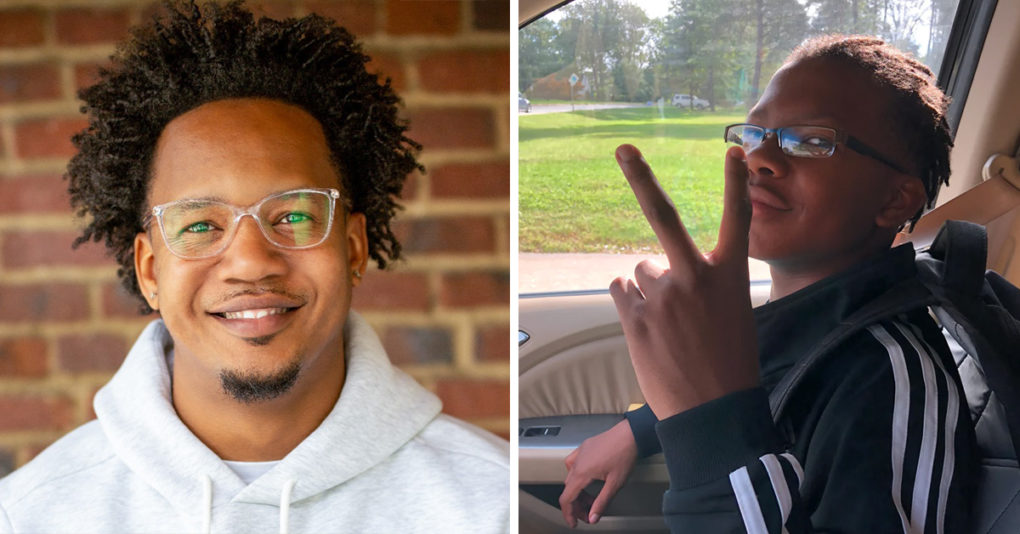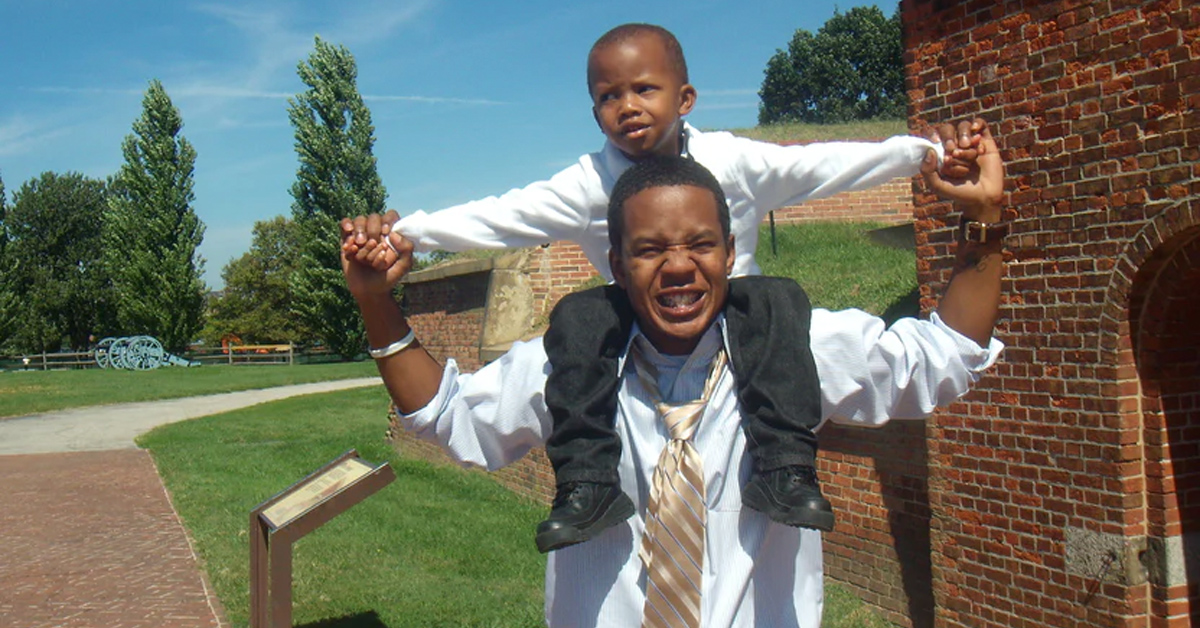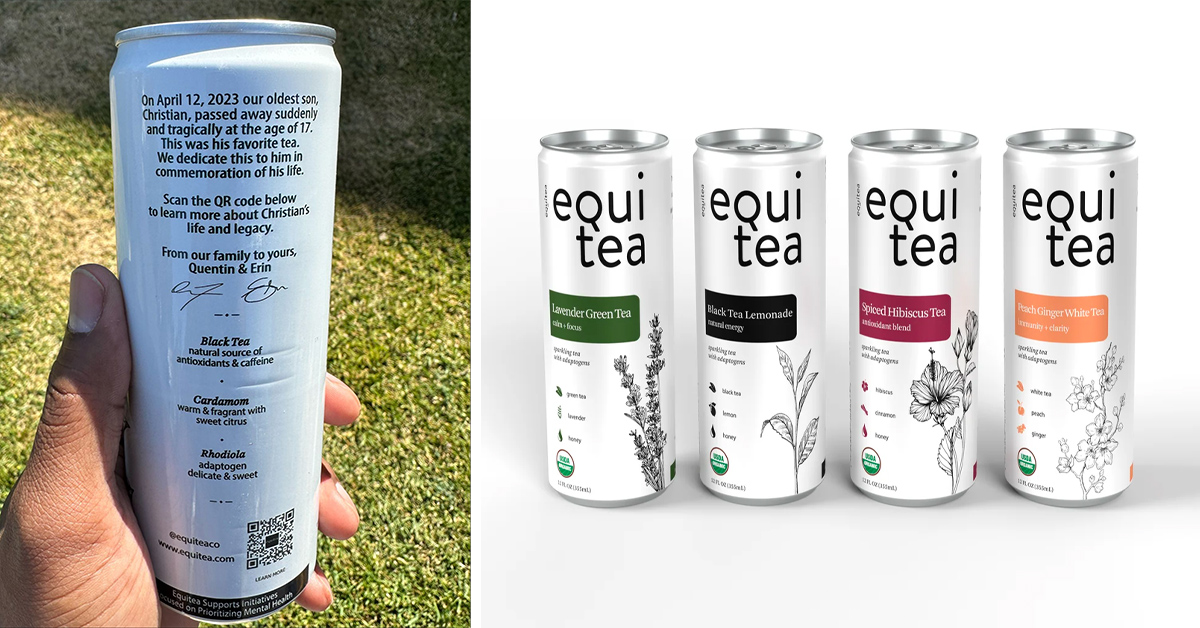
On the morning of April 12 this year, what should have been an otherwise ordinary Wednesday, Quentin Vennie went to wake his 17-year-old son Christian up for school, only to find that he had died in his bed overnight.
Vennie, the founder and CEO of tea brand Equitea, found himself in a grim position: not only needing to grieve his son’s death and adapt to this crushing new reality, but also, for days, ponder unanswered questions as the lingering mystery of “what happened” hung over him. Finally, a coroner’s report gave him an answer that tens of thousands of other families have been receiving in increasing numbers over the past several years: an overdose of synthetic fentanyl.
Based out of the Baltimore area, Vennie had been working to build his startup tea business since 2020 and had been experiencing a life-changing string of luck and progress. The organic brand has been laying seeds nationwide, with placements in natural retailers like Sprouts and the support of incubators like L.A. Libations. The business also led Vennie to a business partnership and friendship with actress and Goop founder Gwyneth Paltrow, who has invested in the brand.
Having faced his own battles with depression and anxiety, Vennie has long embraced holistic living and founded Equitea in order to help spread what he feels is a natural balm to mental health.
But with Christian’s unexpected death, Vennie’s life was entirely upended, and for a brief period he wasn’t sure whether or not he’d be able to keep the business going: “I don’t think that we’ve created a word yet that can quite encapsulate what this is, and then how it feels,” he said.
However, with widespread support from the CPG community and a better understanding of his own grief, Vennie says that Equitea is now charging ahead with a new purpose: to honor Christian’s memory and to raise awareness of the opioid epidemic that has ravaged the nation.

Christian’s Life
Christian Vennie loved life, his father said, although like most teenagers he was still figuring out what he wanted to do with his. Christian was a passionate music fan who would set his morning alarm to songs to start the day and at one point wanted to pursue becoming a musician. He also loved sci fi movies and fashion, and had become interested in running track and field.
Still in the 11th grade, the Vennie family had begun looking into college options for their oldest son; in particular Christian wanted to look at options in Seattle, a city he was obsessed with but had never gotten a chance to visit. He had a cousin who lived there for a time and talked it up, and in particular Christian loved gloomy weather, Vennie said, so Seattle’s constant rain and overcast skies had a romantic allure.
“He just loved life. He loved people. You know, he loves love.”
But Christian was also fighting depression, and although he had been seeing a therapist for help he didn’t like the way his prescription antidepressants made him feel.
“I think he was battling with who he was becoming internally and with needing the validation of the individuals around him externally,” Vennie said.
After receiving the coroner’s report, Vennie learned that on the night of his death Christian had taken a pill someone from school had given him. The pill turned out to be “pure” fentanyl – containing five times the lethal dose. By the time Vennie discovered Christian’s body in the morning, he had already been dead for around nine hours.
“I still have a text message on my phone from him. His room was across the hall from my office, and I was in my office texting him like, ‘Hey, I love you, good night. We’ll talk about your day tomorrow.’ And there was no tomorrow.”
Although he was by no means a regular drug user or suffering from addiction, Vennie believes that Christian had been seeking out an alternative way to manage his depression. It’s most likely that Christian had no clue what he was given contained opioids at all, let alone fentanyl. This reminder that it could happen to anyone is part of why Vennie feels it is vital to speak out.
“My son never got a second chance. And he never saw it coming. I think that’s the part that hurts the worst, is that he didn’t choose this for himself.”
The Ongoing Crisis
It’s nearly impossible to avoid headlines about the ongoing American opioid epidemic, which has also begun spreading around the world. A 2020 study, which utilized a research model to determine how many past “unspecified” reported drug deaths were likely from opioids, estimated that around 453,300 people died from opioid overdoses between 1999 and 2016 – 28% higher than previously recorded.
The problem has only gotten worse since then, with ODs rising fast amid the social impact of the pandemic and the influx of highly potent synthetic fentanyl sweeping the drug market; the opioid is frequently cut into other drugs like heroin and cocaine in high quantities so black market suppliers can cut costs and increase potency, leading many drug users to suffer unexpected and often fatal overdoses. According to the National Center for Drug Abuse Statistics, between March 2020 and March 2021, 96,779 total drug overdose deaths were reported in the United States, a 36.1% increase. Of those, 67.8% involved opioids.
Vennie grew up in Baltimore where he said that even amid the crack epidemic of the 80s heroin still dominated as the drug of the day, particularly among the city’s Black community, so he was always well aware of the dangers the drug posed and had tried to warn his children to be aware of fentanyl.
“It’s so prevalent, it’s everywhere,” he said. “I talked to my son about fentanyl and told him to be careful with anything that he gets from somebody. Something that looks like an Aleve could actually be a fentanyl pill and you would never know it.”

Finding A New Purpose
When he was younger, Vennie had his own struggles with drugs, an experience he has shared publicly and written about. At 26, he was diagnosed with severe anxiety and depressive disorders, leading to a two-year dependency on prescription barbiturates given to him by his doctor to treat his mental health. It was yoga, a natural-products focused lifestyle, and tea, he said, that helped him to beat his addiction and find a natural, non-intoxicating means of treating his anxiety.
He founded Equitea in 2020 after his younger son Jayden was diagnosed with ADHD and, concerned about his own experience with prescription drugs, Vennie’s doctor recommended green tea, as the combination of L-theanine and caffeine can help with focus. Initially a loose leaf tea brand, Vennie developed an RTD line sweetened with raw honey and added lemon juice to provide a better-tasting option which Jayden could enjoy.
After Christian’s death, Vennie said he was unsure if he would still have the drive to keep the business going, but he credited the support of his friends in the food and beverage community for helping to reignite his motivation. Although he mentioned several names of those who reached out to help, he was clear there were many, many more than he could immediately list.
“I don’t even think that the individuals in this space really know to the full extent how impactful that was for me. From the staff at BevNET to the team at L.A. Libations to Sandro from Sanzo and Denise Woodard from Partake, and Noah from Ruby, Jordan from HOP WTR. I’m trying not to forget anyone, but these were individuals who reached out and contacted me and gave me space to heal. They were really there for me, even at a distance.”
“The individuals at Sprouts, Brian Albert, there’s just so many people who held me up when I needed it. And I’ve never experienced that… So those in the beverage space that I know personally, and even some of the people in the food industry that I don’t know personally who sent messages of support – I sincerely and truly thank you from the bottom of my heart. Because those were the things that helped push me through.”
Beyond those in the beverage space, Vennie also pointed to the support he had from his family, friends and business partners, calling his wife and kids “the foundation of my healing.” He also thanked Gwyneth Paltrow, who he said texted him daily to check in on him, as well as another investor friend who started a GoFundMe to help pay for Christian’s funeral. Other friends, he said, would deliver food to him daily to ensure he was eating.
Now, Vennie wants to use Equitea to pay it forward with the hope that Christian’s death can have meaning for others.
The first step was relatively simple to accomplish, but also deeply meaningful: the brand updated the label on its Black Tea Lemonade flavor, Christian’s favorite, to include a message about his death and included a QR code linking to a webpage with more information about his life.
Vennie’s still trying to figure out the next steps. He said he wants Equitea to partner with nonprofit organizations specializing in raising awareness and combating fentanyl poisoning and the opioid epidemic. The company is working to create an annual event called Equitea Cares that will connect people who have lost family members to overdoses and focus on healing as a community. He said he has already heard from therapists who are able to volunteer their time to speak to attendees and is looking to introduce sessions on yoga, meditation, drinking tea and other mindful practices.
“The worst thing to do during grief is to grieve alone and to shut people out,” he said. “If we can come together, even through our own trauma and our own pain, but work collectively and collaboratively as a community to heal from it, then I think we opened up that door of opportunity for growth.”
Details on the event are still being finalized but he hopes to have the inaugural Equitea Cares launch either in 2024 or 2025, either on Christian’s birthday in January or on the anniversary of his death on April 12. The company is now seeking inquiries for those looking to get involved via email at EquiteaCares@equitea.com.
But day to day, as Vennie continues to build Equitea, he said Christian’s memory will be guiding every decision and he aims to create a brand that can be both successful and a force for good, without losing sight that beyond the roles business places on people – be it founder, CEO, investor or consumer – “we’re all just human beings first.”
“Tea is the conduit. It’s the vehicle, it’s the mechanism, but it’s not the only thing,” he said. “And I think we’re getting to a space right now where consumers are looking to connect and attach themselves to brands that stand for and represent something. I don’t think that we’ve ever really seen that in the history of CPG as much as we’re seeing it now.”
“But I think that the other side, for me, is we’re all people at the end of the day,” he added. “So when we say these companies or these businesses are forces for change, I think all that really means is breaking down the barriers and showing that there are human beings that exist beyond these brands.”
Outside of the business, Vennie said one of the most important impacts of Christian’s death was seeing how it affected the lives of Christian’s friends, as many took to social media to share that his death made them take stock of their own lives and to make healthier decisions and avoid drugs. That, he hopes, will be the message everyone can take away.
“I have to believe that God used my son to help so many people, and I would have rather God used my son for that, than for my son to be used for something else,” he said. “So, though I will probably never make peace with it, I am trying to come to a spiritual and emotional understanding and acceptance of what Christian’s life was, what it will continue to be, and what it means to so many people and how I can continue to uplift and up-level his contribution. As long as I’m alive.”
Update: This story has been edited to include additional gratitudes from Vennie for people he said helped him.